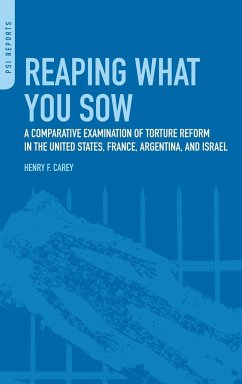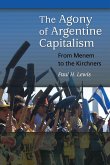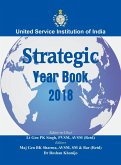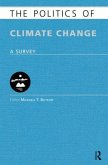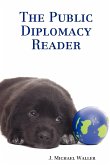This book evaluates the experience of official torture of France in Algeria, as well as recently, the United States since 9/11, Israel against Palestinians, and Argentina during its "Dirty War" from 1972 to 1983. While evaluating what information was gained from torture, the book also shows the costs of undertaking this approach to interrogating suspected terrorists. Reaping What You Sow: A Comparative Examination of Torture in France, Argentina, Israel, and the United States presents a new angle in the study of this controversial practice by studying how these countries attempt to account for these secret practices and reform future interrogations against this universal crime. It also analyzes the costs of torture, whether in terms of intelligence gaffes or alienating potential supporters and enemies alike, creating strategic dilemmas in the war on terrorism. Adopting a comparative approach, the book studies questions like: What is the harm (or benefit) to the state once the torture becomes known? What are the political and strategic ramifications? Does torture help win wars? Can the use of torture bring about any lasting or beneficial reforms? These are daring questions seldom pondered. In asking them, this book will help to foster a discussion that is long overdue. The author concludes that ex-authoritarian regimes like Argentina's junta and France's colony in Algeria have reduced torture more than democracies. These authoritarian regimes collapsed, and new democratic regimes ultimately discredited their predecessors' torture. Despite many zigzags in amnesty, Argentina was more scandalized by torture of its citizens and improved more than France because the latter's subsequent, Fifth Republic regime was more similar to the Fourth, protecting many torturers with a permanent amnesty. Continuous democracies like the United States and Israel have only reduced their worst torture, while "torture lite" continues without accountability. The same elected officials and security agency personnel and prerogatives have largely remained without any legal discipline for their past, secret, criminal practices. The United States and Israel continue to innovate, hide, and resume torture with discretion because the various new, legislative, judicial, and executive checks and balances amount to wishful legal statements. Democracies need permanent accountability mechanisms to assure that security services abolish torture in practice. Otherwise, torture will continue to generate more terrorists without generating information that is consistently reliable.
Hinweis: Dieser Artikel kann nur an eine deutsche Lieferadresse ausgeliefert werden.
Hinweis: Dieser Artikel kann nur an eine deutsche Lieferadresse ausgeliefert werden.

